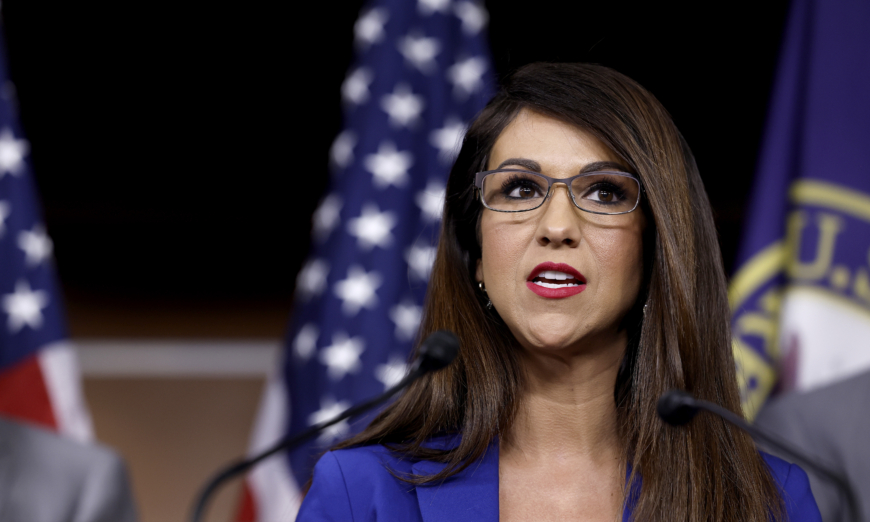Senators wonder why Biden is prioritizing green energy over nuclear power.
President Biden’s Green Energy Goals
President Joe Biden has set ambitious goals for the U.S. Department of Energy (DOE) to achieve a 100-percent “clean electricity grid” by 2035 and net-zero carbon emissions by 2050. To achieve these goals, much of the DOE’s $52 billion Fiscal Year 2024 (FY24) budget request is focused on implementing or enhancing carbon-free energy development funded through programs established in 2021’s Bipartisan Infrastructure Law (BIL) and 2022’s $437 billion Inflation Reduction Act (IRA).
Renewable Energies vs. Nuclear Energy
The proposed budget and landmark bills flatten allocations for oil and gas infrastructure and permitting while promoting “renewable energies” such as solar, wind, hydroelectricity, hydrogen, geothermal, and biomass. However, one form of carbon-free energy that already generates nearly 20 percent of the electricity produced in the United States, nuclear energy, appears to get short shrift in DOE’s proposed spending plan.
Nuclear power constitutes half of the carbon-free electricity generation in the United States, according to the DOE, but its FY24 $1.56 billion budget request cuts spending on nuclear power development by more than $210 million, or 12 percent, from this year’s $1.77 billion budget, and nearly $100 million from two years ago.
Concerns from Senators
During a May 3 hearing before the Senate Appropriations Committee’s Energy & Water Development Subcommittee, several senators expressed concerns about the Biden administration’s tepid support for nuclear energy. Sen. John Kennedy (R-La.) noted that DOE’s proposed spending plan boosts funding for fossil fuel energies by 2 percent and for renewables by 39 percent, while slashing funding for the DOE’s Office of Nuclear Energy.
Sen. Bill Hagerty (R-Tenn.) asked DOE Deputy Secretary David Turk if the department “considers nuclear power to be clean, sustainable, and carbon-free?” Turk replied, “Absolutely, and we’ve got a lot of funding, thanks to Congress” in the BIL and IRA for nuclear power development.
Proposed Bills Could Change Everything
Despite concerns about the lack of funding for nuclear energy, there are at least two legislative campaigns matriculating through Congress that could, if adopted, dramatically alter DOE’s budget plans, boost funding for nuclear power development, and revive the nation’s uranium mining and processing industry.
Sen. Kennedy is lead sponsor of Senate Bill 947, the Senate companion bill to House Bill 1, the ‘Lower Energy Costs Act’ introduced by House Majority Leader Rep. Steve Scalise (R-La.), and adopted in a partisan vote by the House March 30. SB 947/HB 1 incorporate more than a dozen legislative proposals from House Republicans to “increase domestic energy production, reform the permitting process for all industries, reverse anti-energy policies advanced by the Biden Administration, streamline energy infrastructure and exports, and boost the production and processing of critical minerals.”
The Senate version has been read twice and referred to the Senate Energy and Natural Resources Committee chaired by Biden critic Sen. Joe Manchin (D-W.Va.).
Sen. Manchin and Sen. John Barrasso (R-Wyo,) have co-filed a proposed Nuclear Fuel Security Act (NFSA), which calls for creation of a national effort to extract, stockpile, and process domestic uranium to secure a “mine-to-market” supply chain within the United States and establish a national reserve of uranium.
Small Modular Reactors
Right now, American universities and energy corporations are spearheading innovations in small modular reactors (SMRs), which promise to revolutionize energy generation in the coming years. DOE’s Oak Ridge Lab “has been a leader in this space for quite some time. The quicker we can get these technologies available, the better for Tennessee, the country, and the world,” Turk said.
In an April 3 budget outline, the DOE breaks down the $1.56 billion proposed for its Office of Nuclear Energy into five priorities. Supporting BIL-funded SMR research and development among them.
DOE is requesting $10 million to support NuScale Power’s SMR project at the Idaho National Laboratory. The 50 megawatt-electric power module is the first SMR design certified by the U.S. Nuclear Regulatory Commission. NuScale Power expects it to be operational by 2029.
There is also $54 million in the budget request for expanded capabilities at DOE nuclear labs to support SMR research, including at Oak Ridge in Tennessee.
Sen. Martin Heinrich (D-N.M.) said those allocations are for preparing labs to work on SMR projects but the budget includes “zero funding for the SMR program” itself. “The administration should be more aggressively funding this opportunity that is before us,” he said.
“This is an area where we can, and should, be leading,” Sen. Lisa Murkowski (R-Alaska) agreed.
" Conservative News Daily does not always share or support the views and opinions expressed here; they are just those of the writer."





